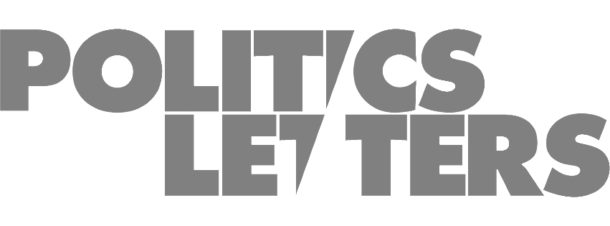By ANDREW HARTMAN and JAMES LIVINGSTON
This is the continuation of an exchange which originated on Facebook, where Andrew Hartman noticed that James Livingston was getting agitated enough about the Left’s animus toward liberalism to deploy the term “alt-left” in several posts, so he probed the idea in a series of questions about liberalism and the Left.
Andrew Hartman: I agree that markets are a crucial ingredient of modernity as well as a trans-historical element of human civilization, but in your discussion of markets thus far you don’t get around to the ugly meanings of markets for those of us on the left, whether we identify as liberal or socialist or Marxist or whatever.
James Livingston: We’re close. The occasion for this conversation is my recent attempt to understand the gradual reduction of liberalism to “neoliberalism” over the last thirty years. Once upon a time, “liberal” was not an epithet except among the ditto-heads who swore by Rush Limbaugh. Nowadays both the Left and the Right share a tired attitude of disgust or distrust toward liberalism as such—so, as a product and a student of the Left, my question becomes, Why?
Why does the Left refuse, or at least resist, an affiliation with liberalism? Because Lenin was right about the “revisionist” Bernstein? That attitude clearly underwrites political arguments for a vanguard party and a war of maneuver to overthrow capitalism—you know, like, let’s have a revolution as against reform. It also informs the notion that any progressive movement beyond the status quo requires the solidarity of the working class and the political muscle of a strong labor movement. Part of the Left surely does entertain these Leninist fantasies, but a small part only.
I think the real antipathy comes down to something more fundamental, which you raised at the outset, and that is a suspicion of the liberal insistence on the supremacy of civil society over the state—which, according to the anti-liberal logics of our time, boils down to a valorization of markets as the bulwark of liberty, as the site of self-discovery and self-determination, as the necessary condition of individualism.
I don’t think civil society and markets are the same thing (no more so than the “public sphere” and markets are). But that suspicion obviously determines the rhetorical reduction of liberalism as such to neoliberalism, and it clearly underwrites economic arguments for state command or ownership of the means of production—that is, for central planning and its objective correlatives in deciding the scope of civil rights, personal freedoms, and claims to privacy.
I think markets are indispensable to both liberty and equality, to both individualism and collectivism (working class solidarity, say). In this sense, in my view, the liberal principle of supremacy of society over the state actually protects the project of democratic socialism. But look, anyone who hasn’t been subjected to the mathematical (read: ideological) rigors of a post-baccalaureate program in economics knows that there’s no such thing as a self-regulating market. Only the neoliberals over at the Club for Growth and the Cato Institute believe that shit.
AH: How are markets indispensable to individualism? Is that really something we need to worry about? And how does the liberal opposition of state to society protect socialism? It’s clear to me that, just in my lifetime, unbridled markets have endangered equality and undermined liberty except for the privileged few. How does democratic socialism thrive under those circumstances? Now this seems counterintuitive.
JL: Let me work backward in an unlikely way. I cite Abraham Lincoln from an unpublished fragment, then Karl Marx and Freidrich Engels from the Communist Manifesto. We go from there.
Lincoln: “As I would not be a slave, so I would not be a master. This expresses my idea of democracy. “
Marx & Engels: “In place of the old bourgeois society, with its classes and class antagonisms, we shall have an association, in which the free development of each is the condition of the free development of all.”
Damn straight. They answer each other. But one statement is from the man who is commonly (and stupidly) associated with a “conservative” approach to anti-slavery, the other is from the men always associated with communism (although, to be sure, Marx himself was a great admirer of Lincoln). What’s the connection?
Lincoln’s cryptic formulation is an uncanny negation of a negation—slavery is what democracy isn’t, but democracy escapes any positive definition except as the absence of slavery, whether we think of that as the perfect abjection of the slave to the master or the absolute power of the master over the slave. Neither party to the bargain is free, or rather, Lincoln suggests, democracy is impossible unless all parties to the bargain are free. Democracy requires freedom, but slavery turns even the master into a tyrant, the man who is no more free than the people he rules.
Democracy requires freedom, liberty, the self-determination of each and every one of us. But it also requires equality, according to Lincoln—it means the end of the hierarchies we associate with slavery, because under slavery, the dependence of all parties, masters included, on a personal, familial, authoritative allocation of labor resources makes them unfit for democracy. Is he thinking that a market in labor would solve that problem? Probably. The political party that elected him advertised itself as the sponsor of “free soil, free labor, free men.”
Marx and Engels are even more insistent, I think, on the significance of individualism—self-determination, self-mastery—in their grand scheme of revolutionary change. Notice that the free development of each is the condition of the free development of all. It’s not an either/or choice between individuality and community, between liberty and equality: they go together, they require each other.
No more classes and class conflict, Marx and Engels claim, because we’re going to assert social control over capital, bend it to our collective will (even as we perfect our individualities). But what is the permanent residence of that will—how does the social control of capital manifest itself?
Absent the prior restraint of the liberal principle that separates political and economic power—that insists on the supremacy of society over the state—the state must appear as the source of this social control. Civil society and the markets it contains will recede as the reach of the state increases. Then what? Then both individuals and workers are at risk because the state becomes (a) the arbiter of all civil rights and individual freedoms, and (b) the employer of all persons.
This is a problem of and for democracy because the labor market is the only known mechanism by which the allocation of labor time is determined “horizontally,” without regard to prior claims of social standing. It permits an unauthoritative allocation of time as such, and, to that extent, it enlarges the sphere of individual freedom. Push this further. If the state becomes the employer of all persons, workers no longer have any choice about where and how to be employed—unless it is a workers’ state as against a citizens’ republic. “Free Labor” becomes an empty slogan either way.
But look, I’m not a fucking neoliberal. The market in labor destroys social relations of production based on personal subordination, inherited titles, permanent indenture, and familial claims or blood ties, but it can’t establish a secure foundation for equality—it’s too creatively destructive, to begin with. More to the point, the formal equality of the labor contract (these services are rendered for this price) is countermanded by the hierarchies of the workplace itself.
And here’s where the labor theory of value matters. Marx didn’t think property was theft. But he understood that the exchange of equivalents in the labor market produced an asymmetry of power. That’s why the “historical and moral element” in the determination of wage levels was a component of his theory—and why markets can’t subsist absent regulation.
As for those civil rights and individual freedoms. Unless each of us is equipped with the natural right to immunity from arbitrary exertions of state power, then liberty, freedom, call it what you will, becomes moot. But that is the founding principle of liberalism itself—the supremacy of society over the state is expressed and enacted in the idea that your rights as a person inhere in your mere humanity. The state can neither confer nor revoke such rights.
AH: OK. I see the connection here between markets and freedom in an abstract, contractual sense. But again, in our time that connection seems attenuated at best. Can you address that issue?
JL: I can try. It’s no great insight on my part to note that unregulated markets lead either to constant crisis, as per 1870-1900 or 1987-present, or to frenzies of merger unto monopoly. These are actually symptoms of the same disease. Yeah, left to themselves, markets will break down, and since the market is the ligature that holds our society together, the consequences will be inevitably awful. I do think we’re living through the end of capitalism as a viable mode of production.
Here’s the thing. My point all along has been that socialists need liberalism to sustain their most basic claims—that liberalism is not the enemy, it’s the source of our better selves, as socialists, as citizens, as Americans.
But, sure, let’s get empirical about the inequality produced by “free markets.” It’s not rocket science, Picketty notwithstanding—in fact it’s painfully simple. Take the two periods I have mentioned, the so-called Gilded Age of the late-19th century and its supposed reprise in the late 20th. The distribution of income between labor and capital, then as now, will be determined by the relation between labor productivity and real wages: if labor productivity is rising and real wages are not, income shares will shift toward capital, and vice versa. In the late-19th century, non-farm real wages were increasing dramatically, mainly due to price deflation and low unemployment rates even during sharp economic downturns, while labor productivity was stagnant. Labor’s share of national income increased as a result—not exactly a Gilded Age.
In the late-20th century, these ratios were reversed. Labor’s share of national income declined as a result.
The question then becomes, why the difference? Aha, a labor movement! Not quite. Only 10% of the industrial labor force was unionized in the late-19th century, pretty much the same proportion as now. State regulation of the market! Not quite. The federal government wasn’t yet in the business, although the states were carving out new jurisdictions (e.g., the constitutions of Illinois and Georgia, ca. 1870), and the courts were in hot pursuit of “big business,” particularly railroad pools and extractive trusts like Standard Oil.
The real difference was cultural. Labor won most of the strikes and lockouts that happened after 1880 because most people couldn’t yet accept large/corporate capital as a legitimate feature of the American scene. These middle-class people, the good bourgeois citizens of the small towns and large cities where the strikes and the lockouts took place, thought of large/corporate capital as a foreign, parasitic growth on the body politic. So they stood with the laboring men—their neighbors—who were trying to contain the power of large/corporate capital.
Today this cultural solidarity seems quaint, and it is. But notice that the resistance to the juggernaut of capital was “pre-political,” never organized, for example, as a labor party or a farmers’ party. The NLU, the K of L, the AFL, or the Grange and the various Farmer’s Alliances, all identified as the spokesmen of productive labor, to be sure, but what they shared was an anti-capitalist attitude, not a sociological base, nor a programmatic posture.
We live in a comparable time—that’s all I’ll grant the folks who love to talk about a second Gilded Age. Over the last forty years, we’ve witnessed a sea change in political sensibilities (not necessarily in the party system or in voting patterns). I think you and I would agree that this change deserves the designation of a cultural revolution with respect to gender, race, and sexuality. Certainly you’re correct to claim that the Left won the culture wars of the late 20th century. Of course the Right keeps fighting a rear guard action in the state legislatures and in Congress, especially but not only on abortion rights. But it’s a lost cause.
Meanwhile we entered the age of Occupy Wall Street—an age of “pre-political” resistance to the juggernaut of capital (something like the resistance to the politbureau that transformed post-Prague Eastern Europe). That is the significant difference, in my view. Occupy, the 1%, the 99%, these terms are the semiotic infrastructure of the moment that made Piketty a best-selling author. The Pew polls showing that younger people favor socialism over capitalism, and the rousing success of Bernie Sanders in the primaries, are new dimensions of this same still inarticulate shift, which I read as an ongoing, unguided attempt to translate the poetry of cultural revolution into the prose of political economy. I hope that doesn’t sound too romantic. The point is that liberalism as I understand it is an essential ingredient in the anti-capitalist sensibilities of our time.
AH: Face it, you are a romantic. I want to bring us back to the relation between liberalism, markets, and socialism because I think that’s where the either/or choices seem to gather—where the Left takes its stand against liberalism. I mean that markets are, as always, the sticking point, because they stand in, practically speaking, for that larger “thing” called capitalism. Pretty clearly, you don’t think they’re the same thing. You call yourself a liberal and a socialist because, in your view, markets are necessary devices in the development of socialism. Right?
JL: Whew. Yeah, I think so. Maybe the best way to explain my position is to tell the story of the two liberalisms that determine our time—both were convened as an argument about socialism, and both were “dissident,” almost underground intellectual movements, until the 1970s. I have to get down in the weeds of 20th-century intellectual history to tell this story, but it’s the only way to understand the still-secret history of liberalism. I’m name-dropping all the way, but these aren’t yet household names so I don’t feel too bad about it.
One rendition of liberalism begins inauspiciously with Ludwig von Mises in 1920, lurches into life when Friedrich von Hayek takes the wheel in the 1930s and 40s, and comes of age in the 1970s, when Milton Friedman’s inane ideas about capitalism become the mainstream—also, not incidentally, when neoliberalism and neo-conservatism part company.
The other rendition begins in 1928, with Fred M. Taylor’s reply to von Mises, then is amplified by Oskar Lange in 1937. This socialist liberalism is the hidden transcript of the 20th century—it’s the legacy the Left must now claim if its goal is to remain democratic socialism. Among its significant figures are Michal Kalecki (the co-founder of the Keynesian Revolution); John Maynard Keynes himself; Joan Robinson; Piero Sraffa; Lawrence R. Klein; Wassily Leontief; Wlodzimierz Brus (who studied with Lange and Kalecki); Istvan Friss; and Radoslav Selucky. Along with Eduard Bernstein, Carlo Rosselli, and many others, these figures compose an alternative family tree for socialists like me, who want and need an intellectual grounding for their liberalism—a grounding that reaches beyond the “original intent” of the founders, into the 20th century.
Now, I know this will sound blasphemous, but our conversation has taught me that corporate liberalism—not corporatism—particularly the kind that TR peddled after 1910, is a branch on the family tree of liberal socialism so conceived, as I’m rewriting it. Among the significant figures in this part of the intellectual foliage are Herbert Croly, Jane Addams, John Dewey, Jeremiah Jenks, Kenneth Burke, Harold Laski, Walter Weyl, Samuel Gompers, Stuart Chase, Rexford G. Tugwell, Wesley C. Mitchell, Walter Rauschenburg, A. A. Berle, W. E. B. Du Bois, Bayard Rustin, John Lewis, and Martin Luther King, Jr. It’s an endless list.
The neoliberal strand in this doubled genealogy starts with claims about the practicality of socialism, in view of the Soviet experiment and the planning debates of the 1920s (Leontief and Evsey Domar were parties to these debates). Von Mises insisted that capital goods couldn’t be priced absent a market, so that final valuations of all goods, including consumer goods, were impossible. The system was by definition arbitrary, irrational, unworkable.
When Taylor and Lange showed that von Mises was mistaken—that a price system was perfectly applicable to a socialist market economy—the argument against socialism, as taken up by von Hayek in the 1920s and 30s (sometimes in debate with Keynes), lost its practical bearings and became more or less metaphysical. It went like this. Markets were the seat of freedom because the information available there was uncontrollable, and indeed unknowable in the aggregate. Any attempt to manipulate markets, in the name of justice, for example, was therefore a direct threat to freedom as such. This is the bottom line of neoliberalism.
The other liberal tradition always approached markets as means to social ends, nothing more, nothing less. They couldn’t be, and never were, self-regulating, so the question, again, was not whether but how to regulate them. The answer to the original question—was John Maynard Keynes, the consummate liberal, also a socialist?—comes next.
***
James Livingston is Professor of History at Rutgers-New Brunswick and the editor of P/L. He is the author of Against Thrift (2011) and No More Work, (2016).
Andrew Hartman is a founding father and first president of the Society for US Intellectual History. His most recent book is A War for the Soul of America, on the culture wars of the 1990s. His new book in progress is on Marxism in in American intellectual history.






No Comments